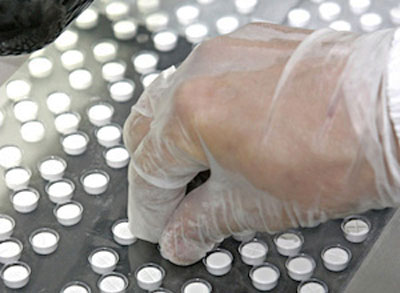|
Imagine a world where all the,
...that are so freely available at any health food store and at many grocery stores were suddenly made illegal so they could be turned into pharmaceutical drugs.
Such a world might seem like some kind
of nightmare scenario from the future, but it is exactly the type of
world that
Big Pharma is slowly trying to
create today as it quietly snatches up and patents all sorts of
natural substances that have been banned by federal authorities
under inane pretenses.
Prior to its prohibition, GHB, which is
an all-natural substance found in the human nervous system, had been
safely used as a sedative, particularly by women during childbirth.
But like marijuana, GHB was eventually recategorized by federal
authorities as a Schedule I depressant for the alleged reason that
it could be abused (along with every other substance in existence,
by the way).
In 2000, the same year in which
over-the-counter GHB was outlawed, the Office of Orphan Products
Development (OOPD), a division of the FDA, submitted a New
Drug Application (NDA) for sodium oxybate, and was immediately
granted "Priority Review" status for the substance.
As you may recall,
Jazz Pharmaceuticals was recently convicted
in federal court for marketing
Xyrem for off-label uses.
Today, however, it is sold by only one
online pharmacy for the hefty price of $1,750 per prescription,
which just so happens to be covered by insurance, according to Dr.
Jonathan V. Wright, M.D. - all-natural GHB, of course, was
never covered by insurance prior to being patented.
Pyridoxamine, a naturally-occurring form
of vitamin B6, for instance, was declared by the FDA back in 2009 to
be a "drug," which means supplement manufacturers can no longer use
the vitamin in their formulas.
As reported earlier this year, U.S. Patent 6630507, entitled "Cannabinoids as antioxidants and neuroprotectants," grants exclusive intellectual property rights for cannabis to the federal government and its drug industry allies, which are working overtime to develop patented, marijuana-based drugs for the treatment of all sorts of diseases.
|

